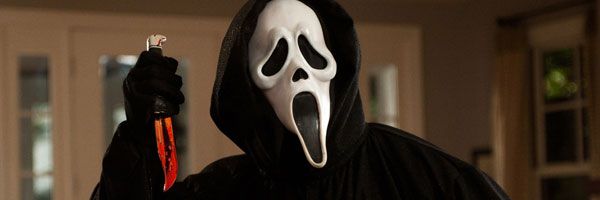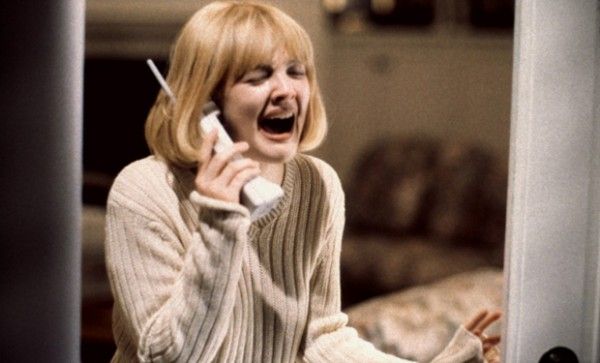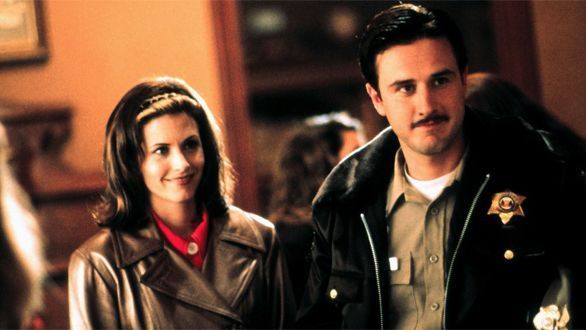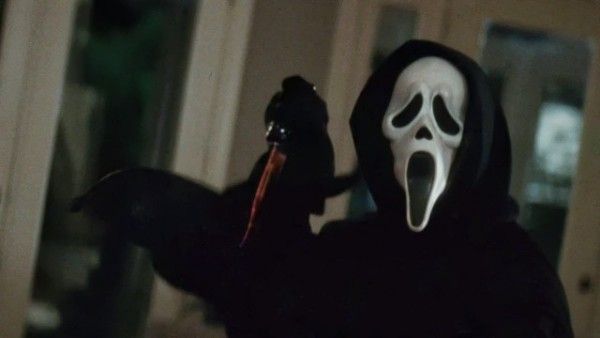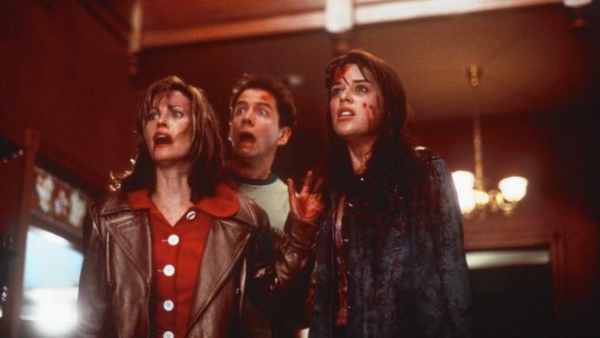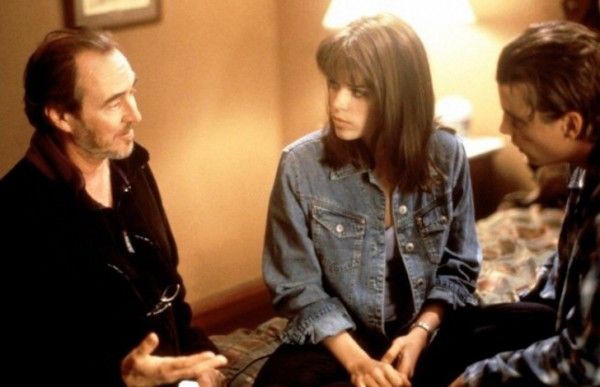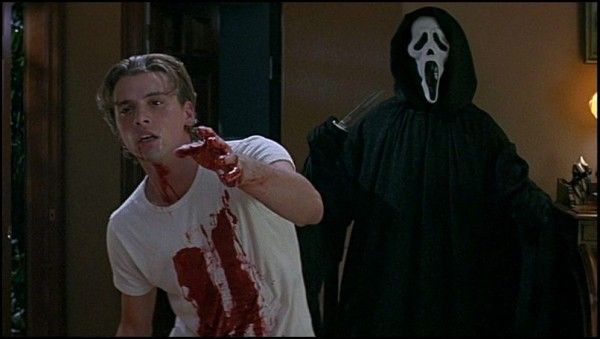In 1996, Scream revitalized and redefined the slasher genre at a time when it had all but disappeared. Directed by horror maestro Wes Craven from a script by Kevin Williamson, it gave the ailing genre a boost by putting all the tropes and tricks on full display and dexterously circumnavigating them. To me, it is an all-timer. The movie I hold most responsible for turning an otherwise normal 9-year-old kid into a genre-obsessed nut. I don’t keep a ranked list of my favorite films, but if I did, Scream would be at the tippy-top.
On December 20th, Scream has its 20-year anniversary — date that comes on the heels of Craven’s passing, making it a bittersweet affair, but ever still a moment of celebration and remembrance. In honor of the anniversary, and as a launch to series of screenwriter Q&As open to the public, the WGA is hosting a screening and Q&A with Williamson and Matthew Lillard.
In anticipation of the event, I got to jump on the phone with Williamson to geek out about horror, reflect back on Scream, ponder the power of nostalgia, and remember Wes Craven. Along the way, we also chatted a bit about The Vampire Diaries, the lure of TV writing, and a lot more. It was a fun, wide-ranging conversation and you can check it out below.
Collider: I just want to start off by saying, it’s a cool thing for me to talk to you today. I know you’re a big genre fan, so you probably had those writers or directors or creators that made all the movies that made you into a genre fan. All of your 90s movies, especially Scream and The Faculty, were the ones that did that for me at the right age.
KEVIN WILLIAMSON: Awesome. I love hearing that. Thank you so very much. That’s exactly what happened with me. I grew up watching all my generation of films. John Carpenter and Wes Craven.
Obviously, that’s not just true for me. It’s hugely true for many 90s kids. The Internet has perpetuated this rampant culture of nostalgia recently. I was wondering, what have the last few years been like for you as one of the people who created so many 90s touchstones?
WILLIAMSON: Well, one it makes me feel extremely old. Two, I love it. I know Dawson’s Creek had a celebration at the Austin TV conference last year, in this past year. It was amazing. I thought I was going to feel this really old man, but I didn’t. I was very honored. The whole goal is that people love it and adore it and that it finds its little audience. It takes its place in a proper little place on a shelf of TV history and movie history. I’m blessed.
The reason I get to talk to you today is for your WGA screening and Q&A. Scream is such an enduring film. 20 years is—I get what you mean by feeling old. That’s a long time, but it feels so fast. So what are your feelings now when you look back at Scream?
WILLIAMSON: I look at it and think, wow, I can’t believe I wrote that at such a young age. I also look at it and go, ohhh ouch, that dialogue, whoa. [Laughs] In some places. It’s hard. My perspective is always going to be skewed. I’m always going to look and refer to things and remember things differently than perhaps a real or honest viewer can. I’m tainted with knowing too much. But I still very much love it.
I don’t think I’ve watched it in a very long time. I think the last time that I watched it start to finish was right before I started working on Scream 4. So I’ve watched them all, again. It’s hard for me to sit through it and just enjoy it. I sit through it and I’m constantly remembering things or I’m remembering scenes that were cut, lines that were added or deleted. Or I’m remembering other drafts that I wrote in the script that I’m just not remembering the right thing. It’s just different. Scream 2 happened so fast I could barely remember writing it.
It’s funny to hear you say that the dialogue will make you cringe. Those have become such iconic lines. For a movie that was made in the 90s it’s crazy if you go on Tumblr, there’s a huge active presence. People love that dialogue. There’s GIFs aplenty.
WILLIAMSON: There are some winners in there, I admit, that I’m fond of, for sure. But I’m a different writer now. It was my voice then and it’s sort of evolved into what it is now. Honestly, it’s not the Scream voice so much, it’s the Dawson’s Creek voice where you go, “Really? What were you thinking?” [Laughs]
Hey, it challenged me and my school peers to speak more intelligently.
WILLIAMSON: Awesome. Then it did something. But yes, it’s interesting. It was a different time. But it is very nostalgic. That’s what I’m hopeful about. It is nice every now and then to have a moment of nostalgia. That’s the entire creation of Dawson’s Creek. From the opening sequence that we kept, that home movie, the burnout film. It was meant to have this nostalgic quality to it, a memory piece. Scream falls into it because it all happened at the same time.
I’m curious about your perspective of revisiting Scream again from a distance when it’s a film that’s so much informed and dictated by the history of horror. I’m curious about your thoughts on how the horror genre has evolved since you and Wes put together this sort of analysis of what slashers had been before and changed the game a little bit.
WILLIAMSON: It’s changed so much, and really in a great way I feel like. Horror films had died a little bit before Scream came around. That was one of the reasons I wrote it. I wanted to write something that wasn’t being made right now and maybe sell if I come up with a new horror film. Because no one is watching those movies. Let’s do it. That was my whole goal, and it paid off. I feel like it’s never stopped. There’s never been another lull. I do believe there’s been a lull of slasher films. There have been a few that I guess would fall under the genre of slasher. Like You’re Next, which I thought was fun. There have been a few really good slasher films, but for the most part, that’s sort of died away at the moment.
When I was doing Scream 4, I had to do a lot of research in terms of what was changing. That was 2010, and things have changed since then with all these Blumhouse films, which I think have raised the game. We’ve got this idea that you can make this sort of high-end genre piece with style and substance. I love all these ghost movies. I’m working on a ghost project right now. The Conjuring and what James Wan has brought to the genre has been amazing. Eli Roth, I’m a huge fan of. I’m excited about genre. I feel like it’s never gone through another lull period. I think it has stayed vibrant with The Ring, The Grudge—through the early 2000s. Now it’s gotten into where—I’m a big fan of The Purge. I thought it was a great concept. I really think it’s going to happen. I bolt my doors. I’m joking.
Make sure you put your blue flowers out.
WILLIAMSON: [Laughs] I’m waiting for The Purge 3. Anyway, I’m a huge fan of horror. I can’t handle all the blood and gore, but that’s what The Following was meant to be. It was meant to be a genre show, a little movie, a little scary genre film every week. That was our goal. That’s what Kevin Bacon and I wanted to do.
It’s surprising to hear you say you can’t handle the blood and gore anymore because that might be the most violent show I’ve ever seen on Network TV.
WILLIAMSON: We didn’t mean it to be so violent. It just kind of got there.
Your career has moved so strongly in the direction of TV in the last few years. Is that a result of—that’s where the opportunities are, or that’s where you feel you have the best opportunity to tell the stories you want to tell? What has pushed you or what drove you in that direction?
WILLIAMSON: It’s so interesting. I ask myself that everyday. A lot of it is just waking up and putting one foot in front of the other and going where I just go, a natural progression. The other thing is I do have a lot of ideas. TV seems to be where it happens faster, quicker. You are trying to get a movie off the ground, and it’s very difficult. One movie takes two years to make. I like to multitask. I love the process of the storytelling in television. I love the serial. Even my stab at doing a procedural show was still very much serialized. I’m such a serialized storyteller. I feel like the story never ends. I want it to go and go and go. However, with cable and streaming now it’s endless. You can do anything. I love to go back and write and direct another film one day, but that’s on the backburner for now because I’m involved with so much television at the moment.
Congrats on the new pilot pickup, by the way.
WILLIAMSON: Oh, I know. Fingers crossed. We are sitting here waiting to hear about some poor.
You’re a busy guy.
WILLIAMSON: You know, Vampire Diaries is in its seventh season.
I know, talk about serialized storytelling! What is that like for you? And it also spawned The Originals. You created this huge thing.
WILLIAMSON: Well, Caroline and Julie have just done—Julie has spearheaded The Originals. I don’t know. I’m thrilled.
It’s crazy. I’ve been watching Vampire Diaries almost since it started, and it’s one of those shows that you eventually go, wait, how many years have I been hanging out with these characters?
It’s crazy.
WILLIAMSON: I know. I was just reading the story document of the last three of the season and was like, ok. Good for you. I didn’t see that coming.
You’re obviously busy with many shows. Do you keep a fairly distant involvement in The Vampire Diaries now?
WILLIAMSON: I’m not hands-on. Caroline Dries, who is doing our FOX show, is the showrunner of the Vampire Diaries. It’s also right downstairs. So I go in there and meet with them all the time. I stay on top of the stories and so forth. I’m still very much close to the production, but I’m not involved as much. I just can’t. And Julie, she’s getting Containment off the ground. She’s also involved with The Originals and she keeps her hand in Vampire Diaries. I have a feeling next year, if Caroline goes on to do this FOX pilot, I see myself getting back on Vampire Diaries.
Oh. Cool.
WILLIAMSON: Because she’ll be gone. I wanted her to work on this new pilot so badly.
Would that be a trip for you, stepping back into the story when it’s gone such wild directions since you backed off?
WILLIAMSON: I know where’s it going. I’m sitting here staring at a script right now, on my desk. By the way, I’ve always planned to come back for the endgame, whenever that happens. If that happens...
I want to jump back into Scream because that’s why I get to talk to you today.
WILLIAMSON: And Matthew Lillard is going to be there moderating. He was so nice to do that.
I don’t want to steal all your fun stories before the Q&A, but I was wondering, I know you’ve spoken about how you were unusually active on set for a screenwriter with the first Scream film. Do you have any particular memories that stand out to you?
WILLIAMSON: At the moment all the memories seem Wes related because I’ve been thinking about it a lot. It’s been constantly on my mind. Just the kindness he showed me on day 1. It was unheard of for him to reach out and fly me up to Northern California, to make me such a part of the casting process. Bob Weinstein too. Bob Weinstein read Scream and had the same reaction you said you had to it. It was basically a version of Halloween, his version of doing Halloween. And he loved Halloween so much. Bob brought me into the family in a big way. Together they made me such a part of the process. That’s why I have too many memories. Sitting on set for the first time, never having entered a set before, never having been on a movie set, my background up until then had been in video production.
There’s no way to talk about Scream and the 20th anniversary of it without discussing —it came at such a sad timing with Wes’ passing. It was really something to watch that resonates with the cinephile and genre community. The outpouring of love and respect for him was pretty incredible.
WILLIAMSON: Talking about a memory, going to a matinee of A Nightmare on Elm Street and seeing that for the first time. That changed me.
Yeah. I think my very first scary movie was Dream Warriors.
WILLIAMSON: Oh wow. Yeah, I love A Nightmare on Elm Street. I was just a fan. I was such an avid fan. I remember being on the set talking about a sequence and he started asking me about maybe staging it a little different. I realized—I think he was shocked that I knew his work so well—I remember I started going like, “Why don’t we do it like The Last House on the Left, where you had the girl on the ground…” We were just going through it and explaining the girl crawling through the mud. After that, I think he just liked me a lot [laughs].
Flattery is an excellent in.
WILLIAMSON: I think he realized that I was really a genre guy. I think, in a weird way, he didn’t see the script as a horror film. He saw it as satirical. I said, “No. No. It’s got to be scary. If it’s not scary, it’s not going to work.” He kept saying, “But it’s a comedy.’ I said, “It’s not. You’ve got to play it scary.” He saw it as a comedy. I told him you’ve got to make the scares work. If you just do it as a spoof, then it’s not going to live. It has to be really scary. I wanted it that way. He was like, “That I can do.”
Last question for you before I let you go, I think at the TCA’s a few years ago you said that when you wrote Scream 4 you planned for a new trilogy. That obviously didn’t work out, but have you been doing anything with those ideas? Could there even be a Scream 5 without Wes?
WILLIAMSON: No. No. When Bob said, “We should do another Scream!” and finally he called and said, “Now is the time.” I said no. It just so happened that I did have an idea for a new trilogy. I went, I pitched it to him, and was like, “You’re doing this.” We got Scream 4 and 5 and 6, but how can you do it without Wes? How? That’s so far from my brain now to even consider. That’s why. And after Scream 4 is there even a call for it? Do you start all over and reinvent it? That’s the case. We have to get new writers, new directors, who do it completely differently. That, of course, would not be me. That’s ok too. I just couldn’t imagine doing it without Wes.
Absolutely. I have to say, as a die-hard Scream fan that makes me sad and satisfied and relieved to hear all at the same time.
WILLIAMSON: I think you nailed it in the beginning when you said a nostalgia trip. In that way we can look back at it with some nostalgia. I look back at it now and am like, that was my start. It was a beautiful way to start.
The WGA will host a free Scream screening and Q&A, open to the public, TONIGHT at 7:30 p.m. the Writer's Guild Theater in Beverly Hills.

